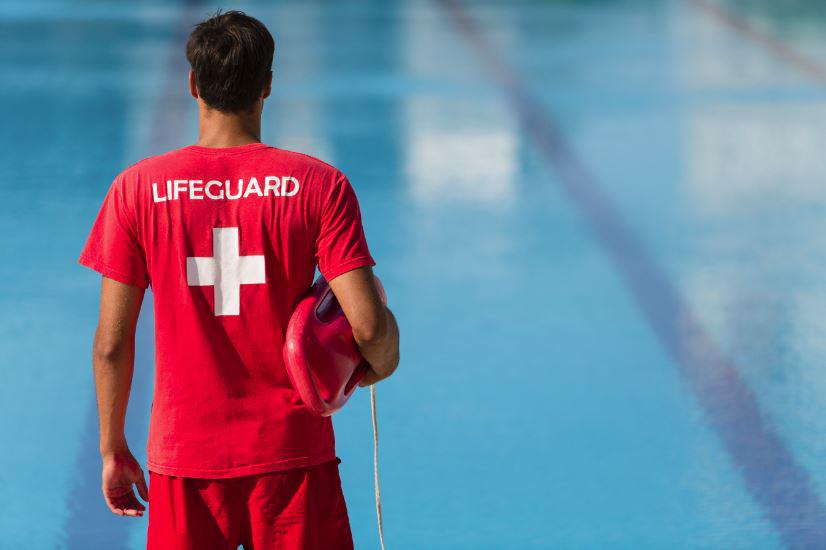East Perspectives: What daily life is like for a lifeguard
Ben Greenberg (’19) spends his summer working as a lifeguard.
July 24, 2018
It’s summer- the time for adults and children alike to beat the heat at the swim club. While the pool is fun, it can also be very dangerous. According to the Center for Disease Control and Prevention, ten people die per day from drowning. Drowning is the fifth leading cause of death in the United States.
That’s where the lifeguards come in. While long ago they may have seemed imposing and adult, in reality they are teenagers like any other Cherry Hill East student. Many East students work as lifeguards during the summer.
Ben Greenberg (‘19), who is working this summer as a lifeguard, talks about the training he underwent to become certified.
“I had to go to the JCC for three six-hour courses and I had to swim a lot and do CPR. I had to learn how to do all that,” he said. “Also, an online training course that takes seven hours. It’s full of videos that show you how to jump in the water and save people.”
Lifeguard certifications last for two years. The American Red Cross Aquatic Training Academy at the Katz JCC, which Greenberg attended, offers classes that are open to the community and are offered several times a year. The minimum age requirement is fifteen.
Greenberg says there are many components to the job.
“I’d say probably once every hour I have to tell a kid to stop running,” he said. “Once you blow your whistle at them they stop running and don’t do it again. I have all the power in the world with the whistle.”
Thankfully, he said, nobody has needed saving. Yet.
Children are required to take a “band test,” which, if they pass, allows them to swim in the pool free from parental supervision. Lifeguards administer the band test.
“There was this little girl yesterday who clearly did not know how to swim well and she tried doing a [band] test,” Greenberg said. “Right when she started swimming I knew I had to fail her. I blew the whistle but she just kept swimming. She didn’t hear. When she finished she was sad.”
When asked if the job required teamwork with other lifeguards, Greenberg had this to say:
“No. Not at all. I barely ever talk to the other guards on stand.”
Lifeguarding can actually get very boring, according to Greenberg.
“In the pool there are a bunch of black lines and when the water moves it looks like ink and I just try to look at it and keep my mind occupied,” Greenberg said. “But only when there’s one or two people in the water.”
But Greenberg says all the boredom is worthwhile if it keeps pool goers safe.








